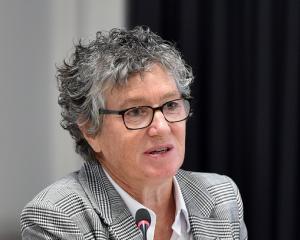The divisions emerged as councillors at yesterday's full council meeting - resuming from Tuesday - voted unanimously to adopt the new policy.
It meant councillors, members of the public or other staff could be prevented from emailing staff directly if their abusive emails were deemed to be in breach of the policy.
It came after Cr Lee Vandervis was accused of sending abusive emails to staff, reducing some to tears, as he demanded answers on a stalled unitary council investigation.
Most councillors supported the policy yesterday, including Marie Laufiso and Kate Wilson, who argued it was long overdue for the council to protect the health and safety of its staff.
Council chief executive Sue Bidrose was at personal risk of a $600,000 fine under health and safety legislation if she did not protect her staff, the meeting heard.
The absence of code of conduct sanctions with real teeth made the policy even more necessary, Mayor Dave Cull said.
The policy was even endorsed by Cr Vandervis, who voted for it yesterday after questioning Dr Bidrose at length about it.
It would formalise what constituted abuse and harassment, and what was ''merely being persistent'', he said.
''I feel it will protect not just staff, but it will protect individual councillors like me.''
Others went further, including Cr Laufiso, who argued the issue was about gender and the council needed to ''be the change we want to be''.
Cr Wilson focused on events in Christchurch, which highlighted a ''much bigger problem'' with hate, while Cr Christine Garey was saddened the policy was needed when staff came to work to do their best.
Their treatment recently had been ''unacceptable'' and the council ''can do better than this'', she said.
However, Cr Jim O'Malley, a first-term councillor, said while he would also support the policy, the council faced a bigger issue of bullying within its own chamber.
He had personal experience of that, from being pulled aside in a hallway and asked to reconsider his position on an issue to the recent misuse of council standing orders to curtail debate.
''It does not sit alone with Cr Vandervis,'' he said.
The policy reflected a split between councillors who chaired committees and those who did not, and he also worried about the policy's ''slightly Orwellian'' erosion of free speech, which was ''always done in small steps''.
Cr Damian Newell also took aim at his colleagues, accusing some of baiting others and ''sometimes a very orchestrated smear campaign around this table''.
''I think we all need to have a good look at ourselves around this table as well.''
An otherwise positive Councilmark review of the DCC had also found some councillors were reluctant to contribute because of the reaction of others, Cr Rachel Elder noted.
''It is a bigger issue than we ever thought.''
Mr Cull said he was saddened to see councillors treating it as a political issue to deflect attention from ''simple blatant abuse''.
''It's not a political issue. It's a health and safety issue.''
Earlier, Dr Bidrose said there was also a ''steady trickle'' of inappropriate emails between staff, and ''pockets'' of bullying were still identified in staff satisfaction surveys, although progress was being made.
The new policy meant abusive emails could be referred by staff to a council privacy officer and senders' email addresses quarantined for six months.
That meant future emails would be screened for abusive consent before being either sent on, or binned.












